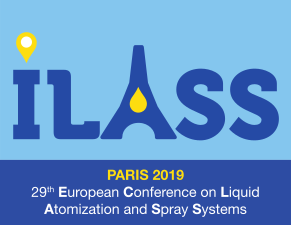Most of active fire suppression systems consist on injecting an agent into the volume set on fire. In the case of aircraft cargo cabin, the agent used up to date is Halon 1301. In fact, the current level of safety, according to the FAA, is that provided by a volumetric concentration of 6% Halon 1301 throughout a protected fire zone for a duration of 0.5 seconds. However, Halon 1301 is known to contribute to the depletion of Earth's atmospheric ozone layer, and it is going to be ban in the incoming years. The FAA has already defined an equivalent level of safety in terms of the performance (concentration and spatial distribution) of the alternative agent. In this work, three different alternative agents are tested. An injection system has been assembled in order to control the injection pressure and the injection duration, in other words, the agent injected mass. The discharge volume is a rectangular constant volume constant pressure vessel of approximately 0.85 m3. This vessel is provided with two consecutive transparent windows of 0.75x0.75 m in order to ensure optical access to the whole injection and mixing process. Liquid phase distribution of the agent inside the vessel is measured by means of Diffuse Back-light Illumination (DBI) technique. Vapor phase distribution, when present, is measured through the single-pass Schlieren technique. Results show a poor performance in terms of spatial distribution of the three alternative agents. The sprays result in narrow jet with little atomization: small cone angle and fast penetration rate. This occurs mainly due to the different thermodynamic properties of these three fluids compared to Halon 1301. Changes in the injection system nozzles need to be done to match the required performance.
|
|
|
Proceedings > Papers by author > Carvallo CésarExperimental study of the dispersion of a fire suppression agent through a real size nozzle of an aircraft cargo cabin extinguisher system
1 : Universitat Politècnica de València
Camino de Vera s/n, 46022, Valencia -
Spain
2 : Universitat Politecnica de Valencia
Camino de Vera, s/n46022 Valencia -
Spain
|
| Online user: 62 | RSS Feed |

|


